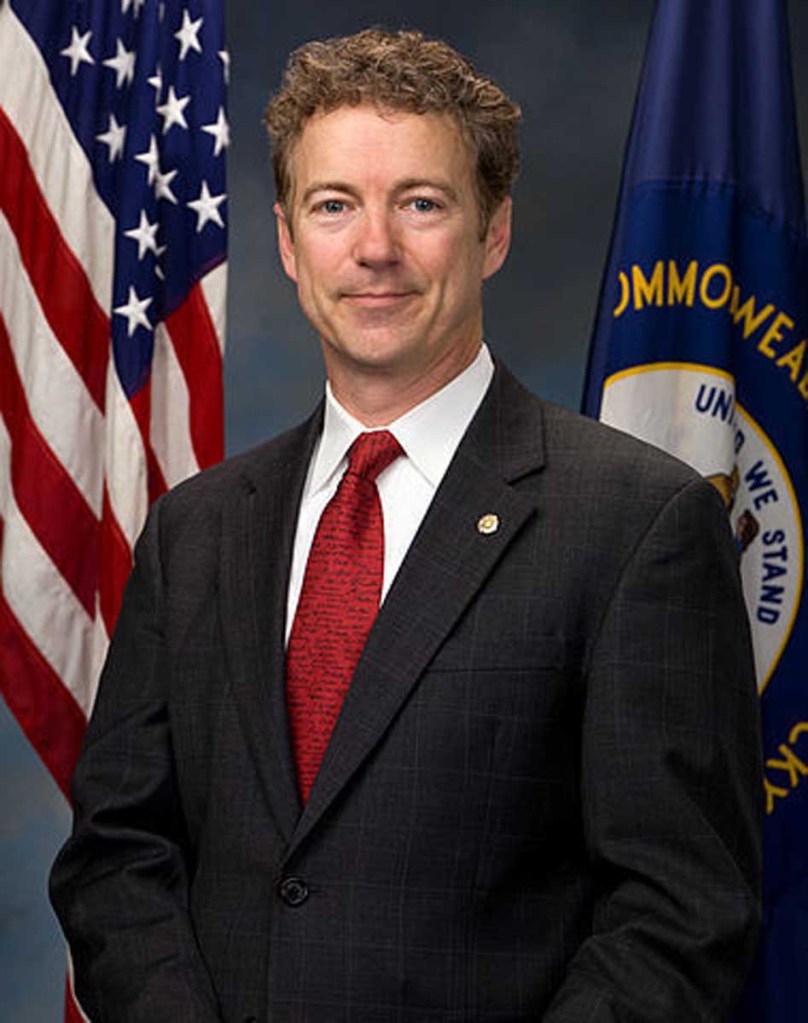Paul focuses on a pipeline in Iowa, but is anyone listening?
Published 2:05 pm Thursday, January 7, 2016

- Kentucky Sen. Rand Paul
WASHINGTON — Pam Alexander owns one corn and soybean farm with her husband, and another farm with her sister and mother near the small town of Fremont, Iowa.
An oil company wants to build a pipeline right through both of them.
Trending
“If a pipe is six feet underground, how do you know if it’s leaking?” said Alexander, who doesn’t want the pipeline and thinks it should be her choice.
But Iowa could soon force her to let the pipeline run under her fields anyway.
The controversial pipeline is about to take on prominence in the Republican presidential race in Iowa, and it could bear on how much longer Kentucky Sen. Rand Paul stays in the race nationally.
Paul’s support among likely Iowa caucus-goers averages just 2.8 percent, according to a HuffPost tally of recent polls.
In an interview on Wednesday, as he headed to Iowa, Paul acknowledged the importance of the Feb. 1 caucus to his presidential aspirations.
“We’ve faced skewed polling thus fair – until the election disproves it,” he said.
Trending
So far, agricultural issues have taken a back seat to terrorism and other national security issues, even in farm-rich Iowa, said Mack Shelley, chairman of Iowa State University’s political science department.
But Paul’s campaign aides say a key part of their state strategy is winning support of farmers, whom they believe are likely to show up at caucus on a frigid, possibly snowy February night.
Who actually shows up on caucus night is the wild card that could scramble what polls now show, say political observers like Shelley.
To win over farmers, Paul is emphasizing Energy Transfer Crude Oil Co.’s controversial plans to buy easements using eminent domain.
A company spokeswoman said about a quarter of 1,274 affected property owners in Iowa have not yet sold rights to build the pipeline on their land.
Paul is holding two town-hall meetings on the issue in three days – on Thursday night in Boone and Friday morning in Oskaloosa.
Paul’s campaign has put up 200 billboards in 17 counties through which the pipeline is supposed to pass, said Paul’s chief Iowa strategist Steve Grubbs. The signs say: “Stop Eminent Domain Abuse.”
Though the issue is up to the state utilities board, Paul said it reflects concerns over the U.S. Environment Protection Agency’s “out-of-control” implementation of clean-water laws that treats nearly all farmland as wetlands subject to regulation.
And, he’s using the issue to draw a contrast with Donald Trump, the real estate developer from New York City who is running first or a close second in the state with Texas Sen. Ted Cruz, depending on the poll.
“Donald Trump is a big fan of eminent domain,” Paul said during the interview, noting the billionaire used the process to gain land for an Atlantic City casino.
“If he came to Des Moines to build a casino and took 10 acres of homes downtown to build parking lots, people would be outraged,” Paul said.
Energy Transfer has said its 1,168-mile crude oil pipeline from North Dakota to Illinois, passing through South Dakota and Iowa, will produce thousands of construction jobs and generate millions in taxes.
Paul said he supported construction of the Keystone pipeline extension. But he, like Alexander, says eminent domain is supposed to be used for a public benefit, and the Energy Transfer project only serves the company.
It can find a way to avoid the property that belongs to Alexander and other opponents, he said.
Most voters’ minds are not on the pipeline, said David Yepsen, director of Southern Illinois University’s Paul Simon Public Policy Institute and an expert in Iowa politics.
“The recent terrorist attacks in Paris and California have unsettled Americans everywhere, and Iowa caucus-goers in both parties are asking what candidates will do to protect us,” he said. “That’s especially true on the Republican side.”
Ethanol subsidies, important to the state’s corn producers, also made headlines recently when a pro-ethanol group began running radio ads against Cruz, an opponent of the subsidies.
Cruz campaign spokesman Rick Tyler said the senator simply supports a “level playing field” that does not favor ethanol.
Timothy Hagle, a University of Iowa assistant political science professor, said national security and other issues seem to be making the ethanol subsidies less important than they were in 2000.
Then-candidate John McCain, a senator from Arizona, didn’t even run in the state that year because he thought his opposition to the subsidies doomed his chances.
Cruz’s position on ethanol likely isn’t a “deal-breaker” in the state, Hagle said.
Neither Trump nor Florida Sen. Marco Rubio’s campaigns responded to inquiries about their candidates’ stances on the pipeline, ethanol or any other agricultural issue in Iowa.
Despite the polls, Shelley said, “there’s a lot of volatility in who is likely to show up at the caucuses,” particularly among Trump supporters, many of whom haven’t participated in past caucuses.
“Trump galvanizes folks who’d probably rather be doing something else” than spending all evening at the caucus, he said. “They may or may not show up and sit there kind of locked up for three hours.”
Paul’s strategist, Grubbs, said their supporters will show – even in bad weather.
“We’re doing well with farmers, who have four-wheel drive trucks,” he said.
Shelley buys the argument, in part.
“It’s not going to be harvest season or spring planting, so they will be less busily engaged than some folks in manufacturing or other kinds of jobs,” he said
Still, Shelley said, Paul is so far behind, it’s hard to see him finishing in the top three in the Republican caucus.
Kery Murakami is the Washington, D.C., reporter for CNHI’s newspapers and websites. Reach him at kmurakami@cnhi.com


